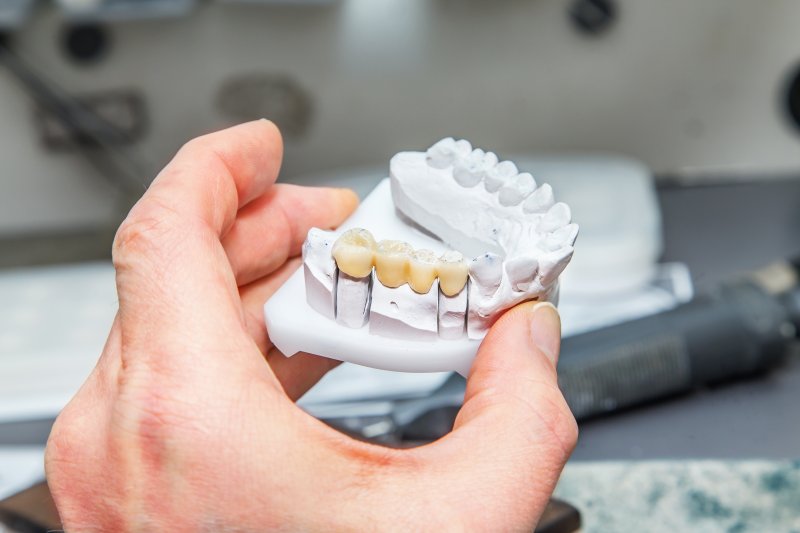
If you’re missing one or more teeth, you know just difficult it can be to complete daily tasks, like eating, speaking clearly, and smiling with confidence. Fortunately, there are a variety of tooth replacement options out there to restore the function and appearance of your smile. Dental bridges are an excellent option for replacing one or more consecutive missing teeth, but they aren’t completely indestructible. Continue reading to learn some different reasons why dental bridges can fail as well as some steps you can take to avoid them.
Poor Oral Hygiene
The most common reason why a dental bridge may fail is due to poor oral hygiene. If you have a bridge, you need to be very thorough when it comes to your dental hygiene regimen. If you aren’t brushing twice and flossing once each day, you are putting your dental bridge and the rest of your smile at risk.
Insufficient Abutment Teeth
Your abutment teeth are the ones that are supporting your dental bridge. However, if they aren’t healthy enough, there will be issues. If there is an uneven distribution of the bridge on the surrounding teeth due to one of them not being supportive enough, it can result in trauma and a dental bridge failure.
Bad Habits
There are many different bad habits that could put your dental bridge at risk. Some common ones include nail biting, chewing on pens or pencils, eating sticky and tough foods, teeth grinding and clenching, and munching down on ice cubes. If you have one or more of these habits, a bridge failure could be in your future.
Poor Jawbone Support
When your jawbone isn’t sufficient enough, neither will your abutment teeth. They will be much less likely to be able to support a dental bridge. With poor bone support comes a greater chance that your bridge will fail, and you will need to opt for another tooth replacement option.
Skipping Dental Checkups
When you go to your regular dental visits, your dentist checks to ensure that your bridge is in good shape. Your hygienist will clear away plaque and tartar buildups that could lead to decay of the surrounding teeth and gum disease. Both of these issues can cause a dental bridge failure.
Dental bridges aren’t indestructible, but they can last up to 15 years if you care for them properly. By taking steps every single day to keep them in good shape, you will be showing off your restored smile for many years to come!
About the Author
Dr. Robert Graffeo is an experienced dentist who has been working in the field for well over 25 years. He earned his Doctor of Dental Surgery from the NYU College of Dentistry in 1990 and has completed countless hours of continuing education courses and programs to keep his knowledge and skills sharp. To learn more about dental bridges or to schedule an appointment at his office in Hoboken, visit his website or call (201) 683-3531.
